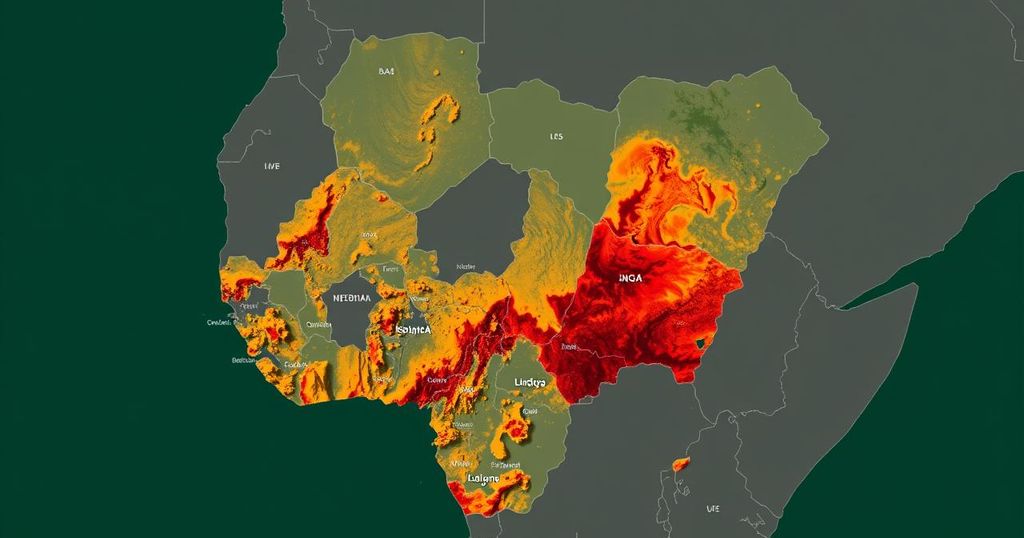The Impact of Climate Change and Conflict on Malnutrition in Nigeria

The combination of climate change and armed conflict in northeastern Nigeria has led to a dramatic rise in severe malnutrition, particularly among children. The ICRC reports a 24% increase in such cases compared to the previous year. Farmers are unable to cultivate their lands due to violence, and the effects of climate change further exacerbate food shortages, leaving over six million individuals at risk of food scarcity in the coming months.
In Nigeria, the combination of climate change and ongoing armed conflict has led to a significant rise in severe malnutrition cases, particularly in the northeastern region near Lake Chad. The International Committee of the Red Cross (ICRC) has reported a concerning 24 percent increase in malnutrition among young children compared to the previous year. Rabiatu Jubrilla shared her personal experience of hardship, describing how her son’s health deteriorated after she stopped breastfeeding him at one year and nine months, leading to severe weight loss. The persistent conflict has displaced millions of individuals and destroyed livelihoods, significantly restricting access to agricultural lands. Local farmers, such as Paul Ezra from Madagali village, have expressed their inability to cultivate their fields due to the threat from Boko Haram and other armed factions, resulting in a reliance on subsistence farming that is further jeopardized by irregular rainfall and climate-related issues. The recent floods have compounded these challenges, sweeping away crops and exacerbating food shortages. Currently, the ICRC anticipates that over six million people in the Lake Chad region will face food scarcity in the ensuing months due to the dual impacts of conflict and climate change.
The interplay between climate change and armed conflict presents a multifaceted crisis in Nigeria, particularly in the Lake Chad region. This area has been heavily affected by the violent activities of groups such as Boko Haram, which have displaced communities and disrupted agricultural practices. The reliance on subsistence farming means that families are exceptionally vulnerable to environmental changes, such as irregular rainfall patterns and flooding. As the situation deteriorates, access to food becomes increasingly precarious, leading to severe malnutrition rates, particularly among children.
In summary, the ongoing issues of climate change and armed conflict are considerably amplifying malnutrition rates in Nigeria, with the ICRC highlighting alarming increases in malnutrition cases among children. The violence has significantly disrupted agricultural activities, leaving millions in the Lake Chad region without sufficient food. The current humanitarian crisis necessitates urgent attention and intervention to alleviate suffering and restore agricultural stability in the affected areas.
Original Source: www.africanews.com






